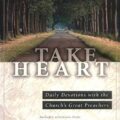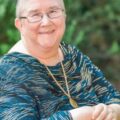 Author of numerous books including King Arthur’s Ransom
Author of numerous books including King Arthur’s Ransom
by Trisha Bleau Smith
T4JYM: I don’t believe I have had the pleasure of reviewing any of your works yet, but have faith that I will see them in the future. That being said I am curious as to where you get the ideas for the books you have written or are preparing to write?
DV: I am a dreamy kind of person – I often get ideas while doing something routine like walking the dog or even cleaning the toilet!
I tend to be inspired by places. My first published book was set in Barcelona, where I saw an amazing fountain. The next thing I do is ask ‘what if?’ In that case, I got the idea of a boy with a birthmark on his cheek and asked, ‘What if the boy was so entranced by the fountain that he thought it might have the power to heal his birthmark?’
I also tend to be drawn towards characters who feel different, who don’t fit in or conform to the norm.
T4JYM: What kinds of books do you write? Is it only children’s books or do you write other works for other audiences as well?
DV: So far I’ve had seven books published, two of which were adult non-fiction and the rest childrens’ fiction. I’m also working on a couple of plays at the moment, including a musical.
Most of my books are available at Christian bookshops in the US and UK, as well as through Amazon, barnesandnoble.com and booksamillion.com.
T4JYM: How much research goes in to preparing for each book?
DV: For my two historical novels, CORIN’S QUEST and KING ARTHUR’S RANSOM (both published by Christian Focus Publications, UK) I had to do a lot of research. I learned the hard way that it’s better to do as little research as possible before writing the story, then fill in with later research. That’s because the little details you learn might be so interesting that you feel you have to include them, but if you have too much detail the story will bog down.
I spent ages tracking down what a Roman lantern looked like for KING ARTHUR’S RANSOM, and then I decided when writing that part of the story, I didn’t need to describe it!
I also wrote a novel (WHICH WAY YOU GONNA JUMP?) about prejudice in a school, involving a character with a gypsy background. For that, I contacted the local gypsy liaison person who works with gypsy kids in schools.
I’ve emailed my doctor and asked him things like the effects of a concussion on my main character. And I phoned a Dark-Age weaponry expert and a jewelry craftsman to get details for KING ARTHUR’S RANSOM. Most people love being asked about their work and are very happy to help.
T4JYM: How much time and effort goes into the editing process? Do you have people who help you edit your works before sending them in or do you do it all on your own? How involved is the editing process with the publishers?
DV: I do lots of editing. As they say, ‘Good books are not written, but re-written’! Probably the most important keys on my computer are those which move text around, as I’m always re-thinking the structure. For some reason my publishers make very few suggestions for edits, and these I do myself.
T4JYM: What writing method works best for you?
- I get an initial idea. It has to be something I’m really passionate about, because I may be spending a year or two with it.
- I jot down all sorts of notes on random bits of paper. Who are the characters? What are their names? Names are extremely important and I spend days choosing the right ones, with a detailed name-your-baby book. What is the ‘hook’ that will draw the reader in? What is the main dramatic question that the reader will keep reading to find the answer for? What is the spiritual heart of the book?
- Initial research, especially for something historical. I’m working on a book right now which involves research into worm-holes in space and time travel. But as it’s fiction, I don’t want to know too much!
- All of the above may take two or three months, before I start writing. My next step is to map out the story as much as I can, using index cards (UK – record cards). I use these to note down chapter ideas and also events within chapters. Having them on cards means I can shuffle them around, useful for someone has scatterbrained as myself!
- I start writing. I often have one scene near the end of the book which is crystal clear in my mind, so I will write that down while it’s fresh. Usually by the time I get to the middle of a novel I am wondering why I agreed to do this. Fortunately by that time if I’m under contract with a publisher, it’s too late to back out!
- When I finish, I try to let it rest for several weeks, if time allows, then take a fresh look at it. I will do a lot of editing at that point.
- Before sending it off, I show it to one friend, someone who is a good writer and whom I can trust to tell me the truth. Also by this time the editor has seen it and made comments.
- I send it off, vowing that this will be my last book! But sure enough, before too long I have another idea that I simply can’t resist.
T4JYM: What are the publishers you are working with and how did you first get hooked up with them? Did you submit your works randomly until a publisher responded or did you have a contact that assisted you in the process?
DV: I’ve been published by four different publishers, and in every case I had ‘help’ in the form of a colleague who introduced me. I have never had an agent. However, it is becoming more and more difficult to get publishers to consider un-agented material. I belong to the ‘Society of Children’s Book Writers and Illustrators’, a world-wide professional organization which has been very helpful.
T4JYM: When do you do your best writing and where?
DV: I always write at home, at a computer in a tiny office which my husband also uses. I use it in the mornings from about 10 to 1. After that I am burned out for creative work, though I may sit at the computer later to do other business.
I have a laptop and sometimes work when I am on a trip, but that is far from ideal because of all the distractions.
T4JYM: Who are some of the authors you read? Why do you like their works?
DV: One of my favorite authors is Elizabeth Goudge (Elizabeth who? I hear you say) – particularly THE DEAN’S WATCH. She was a popular author in the UK in the early 20th century. I love the way she takes a good story that anyone would enjoy but also gives a spiritual depth, without being preachy.
I’m also a big Harry Potter fan. Where else will you find such good imaginative writing, with a main character you want to stick with through a kazillion pages? Also, I think the books have a strong positive core.
For fun, I read a lot of mystery novels.
T4JYM: What training do you have in writing? Did you take any writing courses in college to obtain the skills you have currently?
DV: My dad was a newspaper editor, so I grew up with it. Then when my children were small, my husband suggested I take a correspondence course to fulfill my life-long dream of writing children’s fiction. I wasn’t very good at it at first, and I even had one writer friend tell me to give up and stick to non-fiction. But that just made me even more determined to do it.
T4JYM: What advice would you give to someone who wants to pursue a career in writing?
DV: You’d better love rejection! Or at least, be able to put up with it. I think a career in writing is something you pursue only if you absolutely have to, if there is no way out, if to give up on it is to deny who you really are. If that sounds like you — then go for it!





Be the first to comment